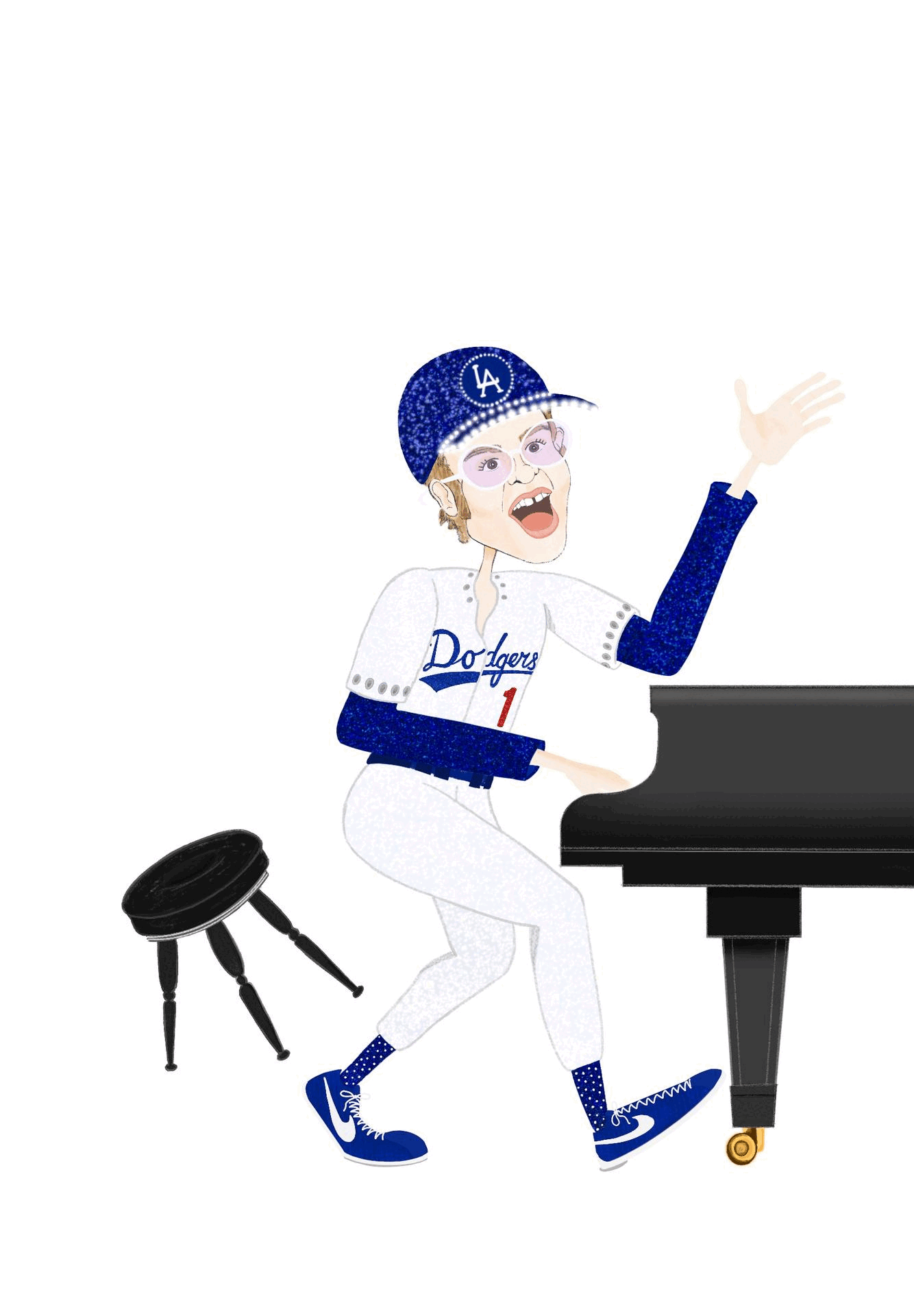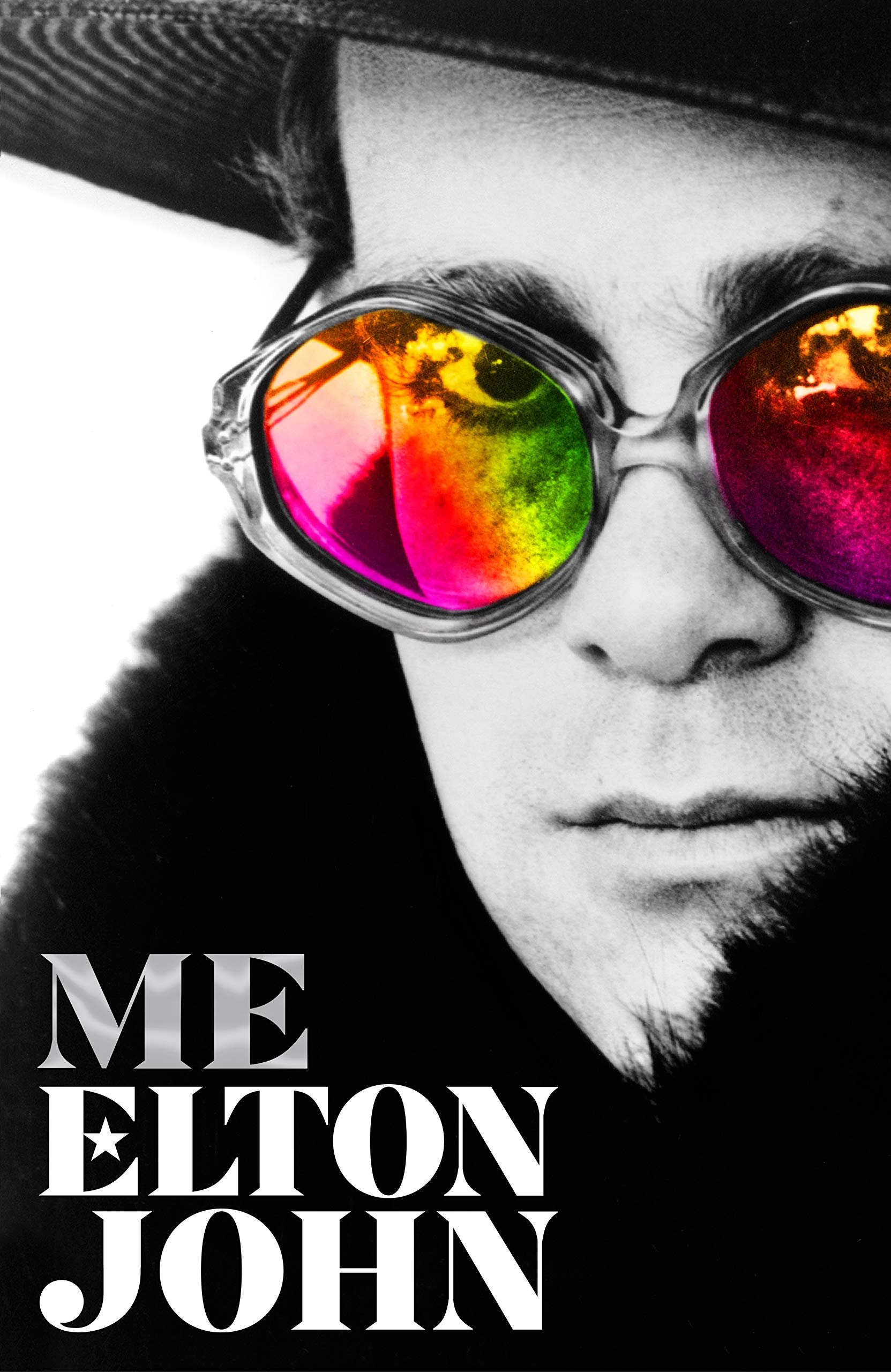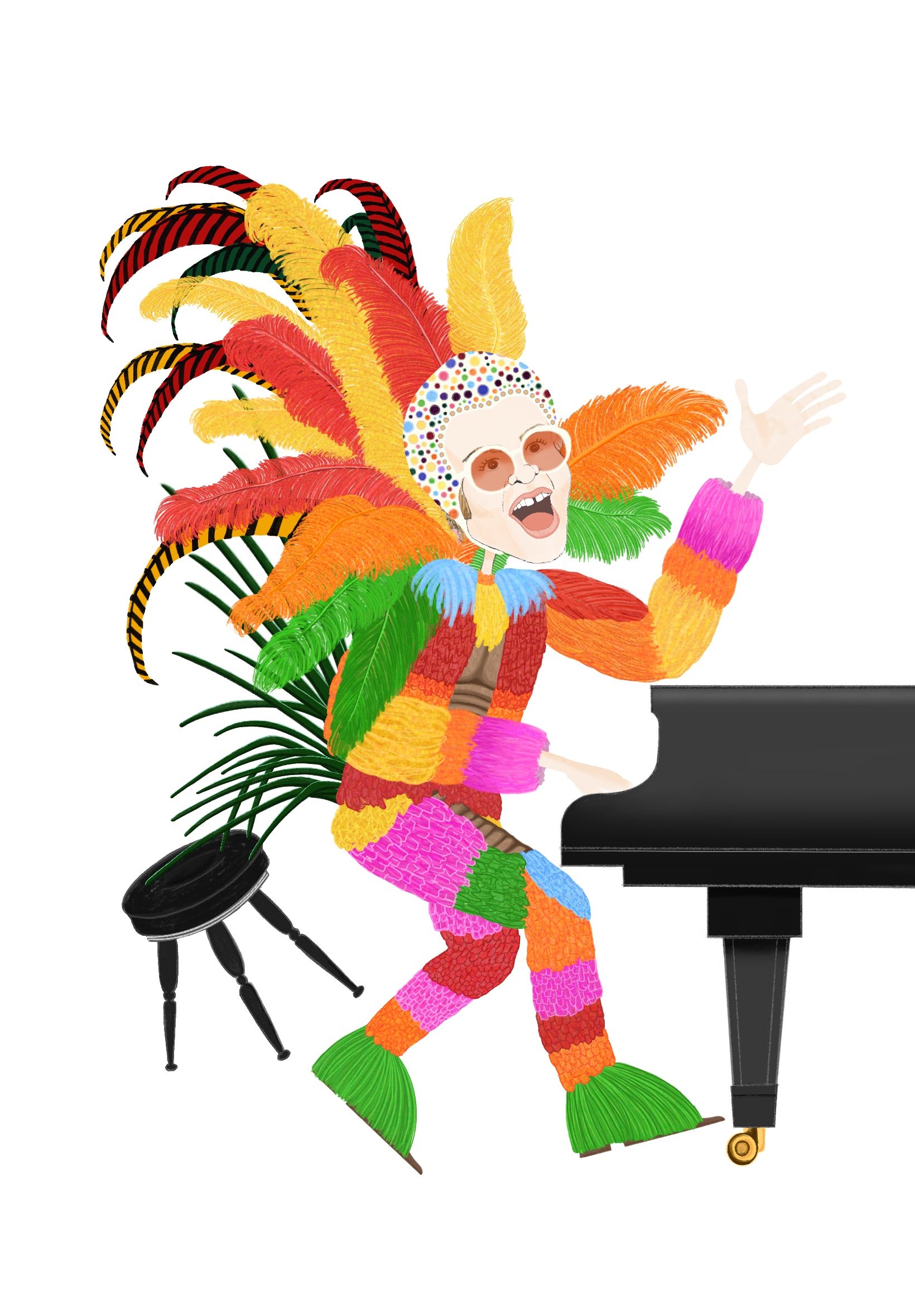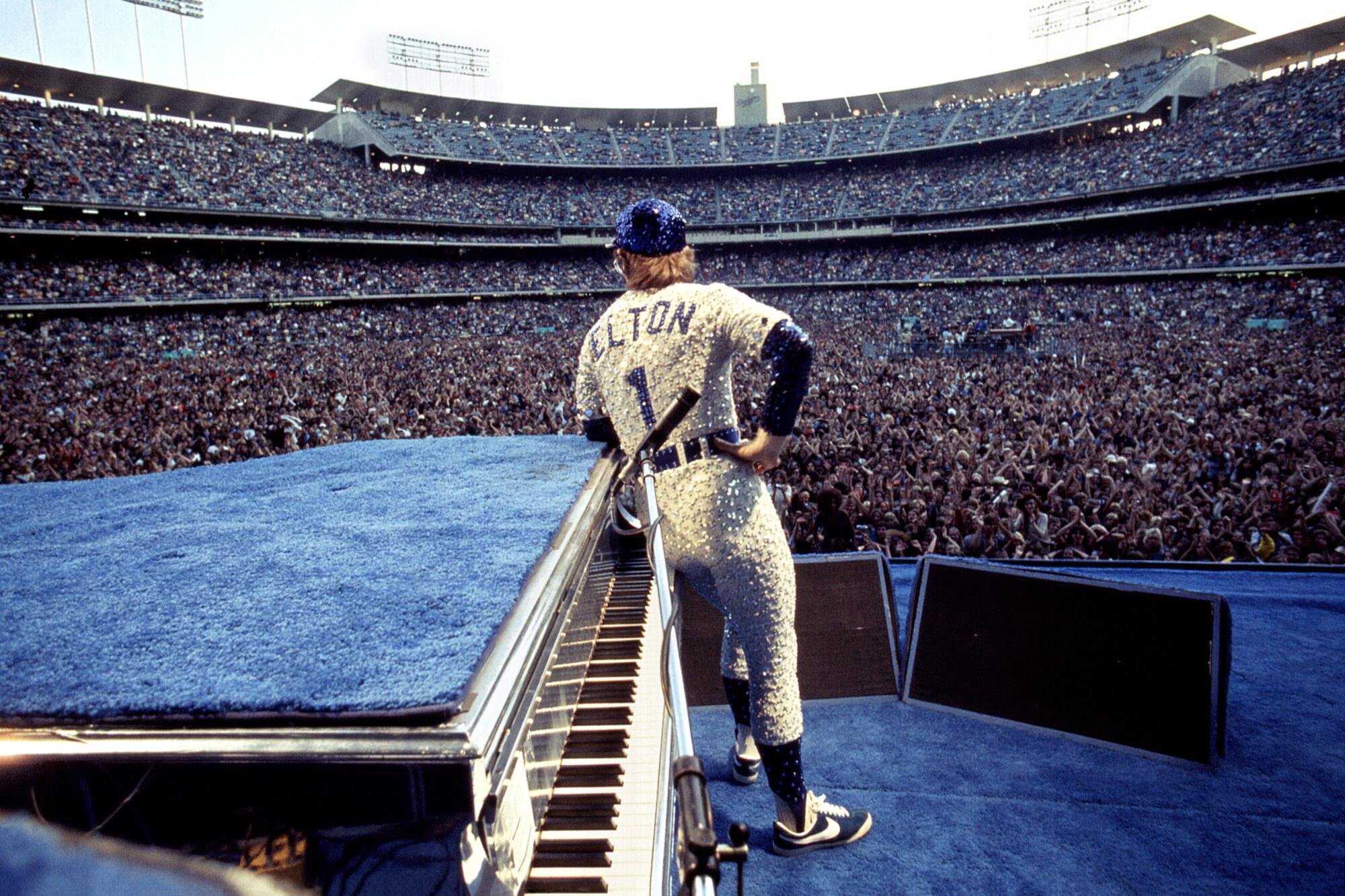Me
Elton John, 2019
Non-Fiction, Autobiography
I’m fascinated by people and their stories; learning about the influences and events which directed the course of someone’s life and shaped their distinct personality traits. I have watched countless documentaries and biopics on noteworthy people across a wide array of industries: athletics, sciences, politics, art. Analysis of the childhood, adulthood, family, or social group of a public figure can provide answers to questions that one might be too shy to ask even their own friend or colleague, allowing an inside look to the private thoughts and struggles of someone whose fame has made you feel like you know them personally – when in reality, you have most likely never interacted with them at all. Reflecting on the history of someone else’s life journey can help broaden understanding of the human experience and may also affect how one interprets those immediately around them. It can validate assumptions that you may have carried about their persona, or conversely, completely shatter any preconceived notions you had about their character.
Despite this interest, up until a few months ago, I had never read a biography (nevermind an autobiography) . This was not a deliberate aversion to the genre, but more so a gravitation to the familiar, which in my case has always been fiction. I am a music fan, particularly of pop and rock throughout the 1960’s and 70’s – the british invasion, motown, even some disco. Of course, there are numerous names and groups that come to mind when recalling this era of popular music – many of whom garnered a level of stardom that just isn’t matched in the way we regard celebrities today – but in and amongst this Mount Rushmore of iconic musical artists, there is one that singularly defined himself beyond that of mere musician status. Sure, he is an expert pianist (who began training at the Royal Academy of Music at age 11) and yes, he has a set of vocal chords that, depending on what the moment calls for, can either serenade you, make you well up with emotion, or push you onto the dance floor – but what’s more is that he is an elite-level entertainer who for nearly 60 years has engaged with his audience in a way that dazzled the eyes as well as the ears (all while being physically constricted behind the confines of his Yamaha piano). The person I am referring to is Reginald Kenneth Dwight, or as he is more popularly known, Elton John.
If you have some level of awareness of Elton John, you will know that he is British, he is one of the world’s most successful musical artists of all time, and he exudes what could be best described as a larger than life persona. Whether you have seen him being interviewed on a talk show, viewed any tapes of his concerts, or even watched the 2019 biopic, “Rocketman” , you most likely will have gathered that he is a man who loves extravagance. This often took the form of fairly harmless things like cars, fine art and photography, as well as music paraphernalia (a collection so vast that it became too monumental for even him to handle, and he subsequently auctioned off in a garage sale valued at $37,000,000 in today’s dollars). On stage, he notoriously donned elaborate, astonishing costumes that broke conventional fashion styles and demanded attention. Crowns, feathers, sparkles, rhinestones, ultra-platforms – nothing was too much for Elton. There were no limits, in any measure of his life. In fact, this exactly was what made him so special, but also, what ended up causing so much pain and struggle throughout much of his adulthood.
What you learn by reading this autobiography, aptly called “Me”, is that Elton’s appetite for indulgence, paired with internal struggles with self acceptance and deep insecurity, led to a long and near-death battle with substance abuse. Relatively quickly into his rise to fame, Elton began to rely heavily on cocaine, prescription medication, and alcohol consumption to relieve stress and seek escapism. This spiraled into a separate food addiction, which as a whole, took over his mental and physical health at the height of his music career. Elton also describes his suicide attempts – yes, that’s plural. This period of his life is a whole rollercoaster ride of worldwide touring, bad habits, billboard hits, outlandish music videos, and extraordinary outfits.
That is not to say that his autobiography is cast with a tone of doom & gloom… quite the opposite! In spite of the personal struggles that he dealt with, Elton’s life and musical success was, often, a fun and exciting party. He recounts his socialization with Hollywood’s elites, and his friendships with other musical geniuses of the time. These tales are illustrated on backgrounds ranging from private jets in the sky, to opulent villas up in the mountains, to castles owned by England’s royal family. Elton’s stories offer a peek behind the curtain into the entertainment business during what could be considered as the most iconic era of popular music. He speaks candidly about his relationships with stars like John Lennon, Billy Joel, Lady Gaga, and Rod Stewart (well, more a rivalry in this case), and other noteworthy people such as Princess Diana and Billie Jean King.
On top of all of this, Elton served as the chairman and director of Watford Football club, the sports team he revered throughout his childhood in step with his father. His passion for the game and dedication toward Watford’s team drove a highly ambitious plan to get the squadron out of a long-endured slump and into a higher calibre of competitive gameplay. The team ended up reaching the FA Cup Final at Wembley Stadium in 1984 thanks to Elton’s interventions with manager Graham Taylor… not something your average popstar can include on their resume.
Moreover, what is most significant and worth commending, is that via rehabilitation, therapy, and self acceptance, Elton came out on the other side of his fight with addiction. 2025 marks his 35th year of sobriety.
"I used to think that substance abuse was a way to escape reality, but in reality,
it was keeping me from truly living. Sobriety has opened up a whole new world for me."
– Elton John, on getting clean from drugs and alcohol
He attributes the turning point in his life toward health and recovery in 1990 to the death of AIDS victim, Ryan Wayne White, which occurred the same year as Freddie Mercury’s passing from the disease. Ryan died at age 19 after becoming infected with HIV from a contaminated blood treatment for his hemophilia disorder. Elton, who became a personal friend of Ryan and his mother Jeanne, was acutely affected by Ryan’s death – describing intense feelings of shame and guilt that he himself was living in a manner that was out of control. This tragedy was a catalyst for him to take ownership of his reckless behaviour, and furthermore, devote time, energy, and assets toward helping find a cure for AIDS. Established 2 years into his sobriety, the Elton John Aids Foundation has since raised over $565 million dollars contributing directly to HIV prevention, educational initiatives, and care services for those living with HIV.
What I enjoyed most about the book were two things – Elton’s level of honesty and vulnerability with the reader (not holding back on divulging intense and sometimes embarrassing details of his addictions) balanced simultaneously with his classic, dry, British humour. Though he is widely regarded as a “diva” (I mean, look at the documentary, “Elton John: Tantrums & Tiaras” released by his husband in 1997… the proof is in the pudding!), there persists an authentic sense of self awareness and willingness to laugh no matter the moment that Elton weaves into both the high points of his careers along with the lowest of low points. In so doing, he makes it very easy for the reader to appreciate the grandeur of his life challenges between global attention, inordinate wealth, complex personal relationships, an eating disorder, and drug abuse. It is obvious that even throughout garnering critical and commercial success, he was dealing with serious inner turmoil and physical health problems sparked by factors including childhood trauma, depression, and loneliness. These are things that many people can relate to, even when you can’t relate to the enormity of Elton’s fame. The book is, in spite of these serious topics, laugh out loud funny all the way through.
Lastly, what stood out to me as another contrast from his prima donna representation in media was Elton’s repeated praise of and appreciation for his lifelong collaborator and lyricist, Bernie Taupin. At every opportunity possible, he impresses upon the fact that he would not have achieved the body of work that he was able to without the contributions made by Bernie. The trope of conflicting egos between artistic partners is one that we have witnessed time and time again, especially within the music sphere – Lennon and McCartney, Gilmour and Waters, Simon and Garfunkel. So much so that reading Elton’s account of his untarnished, 50+ year friendship with Bernie Taupin was a real breath of fresh air. It is clear that, to this day, Elton has a profound depth of love and respect for Bernie as a person, and for his writing skills.
A follow-up documentary film was created after the publication of this autobiography, entitled “Elton John: Never Too Late”. Produced by John’s husband David Furnish, the film premiered at the Toronto International Film Festival (TIFF) in 2024. For over a week beforehand, I had the tab to book tickets open on my desktop, but for some reason (still beyond my recollection) I never clicked confirm to purchase! This slip is a real regret of mine, as not only would it have been a fun experience to see the documentary on the big screen, but Elton himself came out on stage following the screening and conducted a Q&A with the audience… I might have been able to have him sign my copy of “Me”!
As an introduction to the biography genre, this book was like dipping my toe in a warm bath. It was a joy to get through, from cover to cover. It was an easy read overall that, much like the author’s ethos, did not take itself too seriously. The breadth of experiences presented in Elton’s writing – from his humble beginnings growing up in a council house on the outskirts of London, to touring America and beginning his musical career, to performing sold out shows at some of the world’s most notable concert venues, to attaining EGOT winning status, and finally to now, transitioning toward a quieter and calmer existence with the love of his life and their two sons – demonstrates the unique and astonishing life he has led. Elton’s contentment shines through his writing. Though I am aware that not all biographies are going to share this happy ending, I can only hope that the next one I dive into is just as much of a pleasure to read as this first one was











